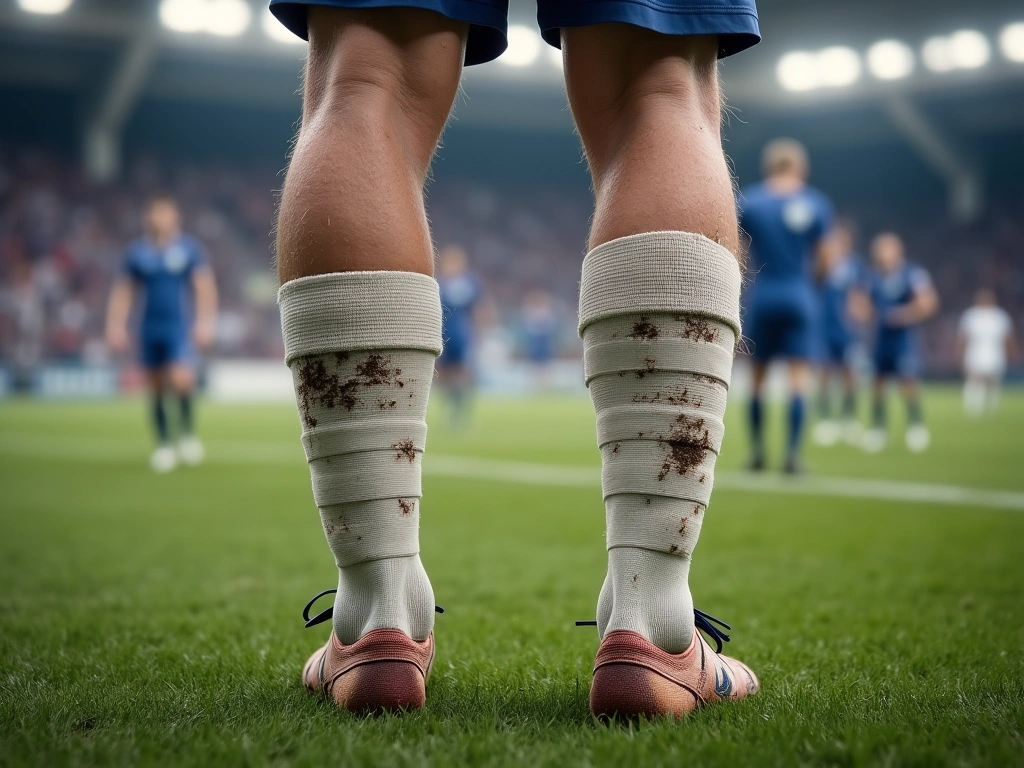Brazil is universally recognized as the spiritual home of football, a factory of talent that produces technically gifted players at an industrial rate. However, a recurring pattern has emerged over the last few decades where these mercurial talents explode onto the global stage, only to face a steep decline in their mid-to-late twenties.
This phenomenon goes beyond simple physical injuries or bad luck; it is deeply rooted in a complex ecosystem involving socio-economic pressures, cultural expectations, and the ruthless business of modern European football. Understanding why Brazilian stars often burn out requires looking at the entire lifecycle of the athlete, from the futsal courts of São Paulo to the high-pressure stadiums of the Champions League.
The trajectory of the Brazilian superstar is unique, characterized by an incredibly early peak followed by struggles to maintain consistency. By examining the structural and psychological burdens placed on these young men, we can better understand the human cost behind the dazzling skills displayed on the pitch.
The Socio-Economic Burden of the “Golden Ticket”
For many aspiring footballers in Brazil, the sport is not merely a game or a career path; it is the only viable escape route from poverty for their entire extended family. This dynamic creates a unique pressure cooker known as the “Golden Ticket” syndrome, where a teenager becomes the primary breadwinner for parents, siblings, and even distant relatives before they sign their first professional contract.
This financial responsibility forces players to prioritize immediate financial returns over long-term career development. Agents and families often push young talents toward the highest bidder in Europe or Asia, regardless of whether the club’s style or culture is a good fit for the player’s development.
The psychological weight of carrying a family’s financial survival can lead to risk-averse behavior or, conversely, immense anxiety when performance dips. When a player realizes that a bad season could impact the livelihood of dozens of dependents, the joy of the game often evaporates, replaced by a grinding sense of obligation that accelerates mental burnout.
The Physical Toll of “Ginga” and Creative Play
Brazilian football is famous for Ginga—a style of movement characterized by rhythm, sway, and creativity. While this makes Brazilian attackers the most exciting to watch, it also paints a target on their backs. In many leagues, particularly in Europe, defenders resort to physical intimidation and tactical fouling to stop skillful dribblers.
Statistically, creative Brazilian forwards suffer a higher frequency of fouls than their European counterparts who may rely more on passing systems. Over time, this accumulation of trauma—specifically to the ankles, knees, and metatarsals—shortens the prime years of an athlete.
Furthermore, the transition from the rhythmic, pause-and-go style of the Brasileirão (Brazilian League) to the high-intensity, non-stop pressing of the English Premier League or Bundesliga shocks the body. Without a gradual physical adaptation period, which many transfers lack due to high price tags demanding immediate results, the risk of chronic soft-tissue injuries increases significantly.
Cultural Isolation and Adaptation Challenges
The export of Brazilian talent happens at increasingly younger ages, with many players leaving for Europe at 18 or 19. This migration involves a drastic cultural upheaval, moving from a collectivist, warm-weather culture to often colder, more individualistic societies in Northern Europe.

Language barriers and social isolation are profound issues. In Brazil, a player is often surrounded by a large community network; in Europe, they may live alone or with a small, insulated group. This isolation can lead to homesickness, known in Portuguese as saudade, which directly impacts motivation and focus on the training ground.
To combat this, many players bring an “entourage” of friends and family to live with them. While this provides emotional support, it can also create a bubble that prevents true integration into the new club’s culture, creating a friction that eventually alienates the player from teammates and coaching staff.
The Commodification by Agents and Third Parties
The business side of Brazilian football has historically been plagued by the commodification of young athletes. Although FIFA has cracked down on Third-Party Ownership (TPO), the legacy of investors owning percentages of a player’s economic rights still influences career decisions.
Young players are often treated as financial assets to be flipped for profit rather than human beings requiring development. This leads to a nomadic career path where players are transferred frequently to generate commission fees for agents, preventing them from settling into a system where they can mature.
This instability prevents the development of tactical discipline and professional maturity. When a player is moved every two seasons, they never fully absorb the long-term nutritional, tactical, and physical habits required to play at a top level into their thirties, as seen with many European peers.
Lifestyle Distractions and the “Entourage” Effect
The sudden acquisition of massive wealth by young men who grew up with very little can lead to lifestyle choices that are detrimental to athletic longevity. The “celebrity” aspect of being a Brazilian national team player brings invitations to high-profile social events, parties, and commercial obligations that eat into recovery time.
Recovery is the invisible half of professional performance. Sleep deprivation, poor diet, and irregular schedules caused by an active social life prevent the body from repairing the micro-tears caused by training. While talent can mask these deficiencies in a player’s early twenties, the biological bill comes due as they approach thirty.
The presence of the parças (close friends who live with the star) can sometimes enable a lifestyle that contradicts the monk-like discipline required by modern super-clubs. Managing this balance between social happiness and professional discipline is a hurdle many talented players fail to clear.
Tactical Rigidity vs. Creative Freedom
Modern European football has evolved toward systemic rigidity, where every player, including the striker, has specific defensive responsibilities and pressing triggers. This contrasts with the traditional Brazilian upbringing which values improvisation and individual expression.

Many Brazilian playmakers struggle to adapt to systems that restrict their freedom. When a coach demands that a creative genius track back and defend for 90 minutes, it can lead to friction and a loss of the joy that fuels the player’s performance. This tactical mismatch often leads to players being labeled as “difficult” or “lazy,” accelerating their exit from top-tier leagues.
The mental fatigue of constantly playing against one’s natural instincts can cause a player to lose interest in the game. Once the passion—the vital fuel of Brazilian football—is extinguished by rigid tactical demands, the decline in performance is usually rapid and irreversible.
FAQ
Why do Brazilian players leave their home country so young?
The primary driver is economic disparity. European and Asian clubs can offer salaries that are exponentially higher than what Brazilian clubs can pay. Additionally, the structure of global football incentivizes European clubs to buy talent early to mold them tactically before their transfer values become too high.
Does the style of play in Brazil contribute to injuries?
Indirectly, yes. The Brazilian style emphasizes dribbling, holding the ball, and inviting pressure to create space. This style naturally invites more physical contact and fouls from defenders. When this style is transported to more physical leagues without adequate physical protection or adaptation, the wear and tear on joints accumulates faster.
What is the “Golden Ticket” syndrome?
This refers to the immense pressure placed on young athletes to succeed financially to lift their families out of poverty. The athlete is viewed as a winning lottery ticket for their community. This pressure can lead to decision-making focused on short-term financial gain rather than long-term career stability.
How does homesickness affect performance on the field?
Psychological well-being is directly tied to physical performance. Chronic homesickness or cultural isolation increases cortisol levels (stress), which can hamper recovery, disrupt sleep, and lower focus. A player who is unhappy in their daily life rarely performs at their peak consistently on the pitch.
Are agents responsible for the early decline of players?
While not solely responsible, agents play a significant role. Agents who prioritize frequent transfers to generate commission fees can disrupt a player’s development. A lack of stability prevents a player from settling into a tactical system or a community, which is essential for longevity in the sport.
Can Brazilian players adapt to European tactical discipline?
Yes, many do successfully, but it requires a willingness to change their natural game. Players who blend their natural technical ability with learned tactical discipline often have the longest careers. Those who resist the defensive and structural demands of modern football tend to find themselves marginalized as they age and their raw speed decreases.


